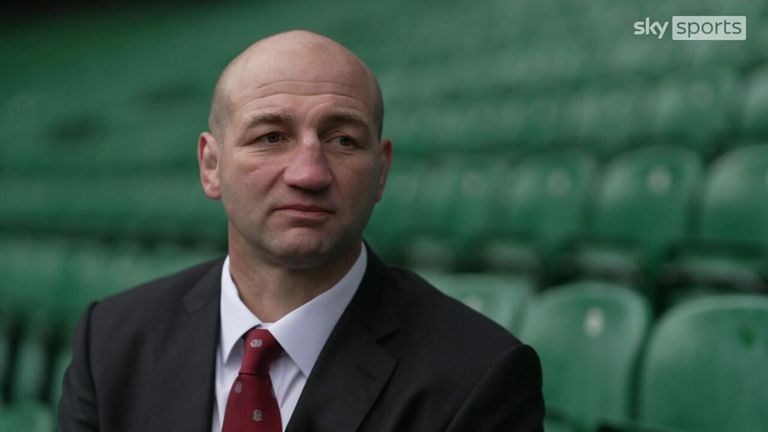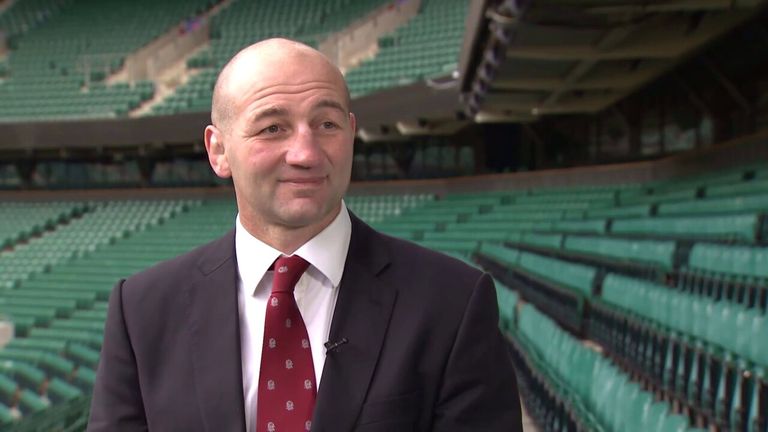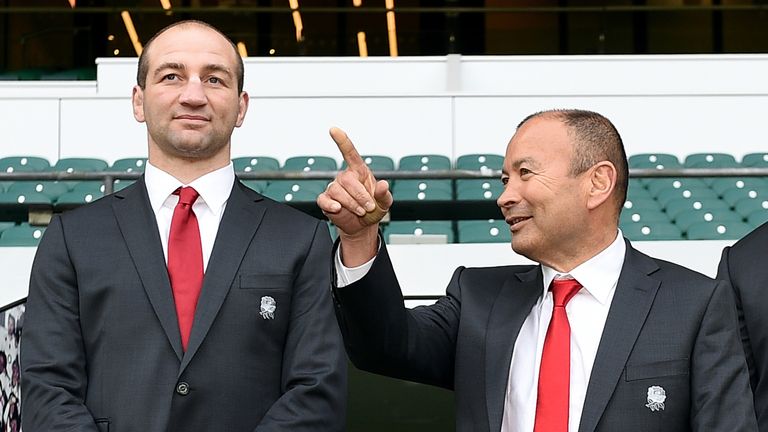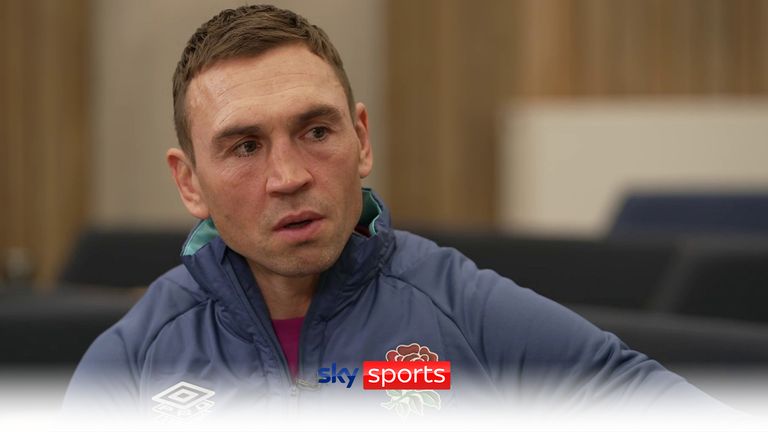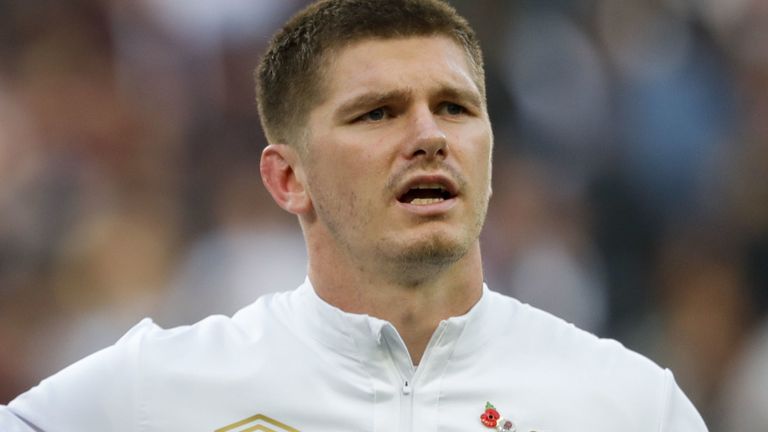
A new era dawns for England under Steve Borthwick. Will it get off to a flying start?
England head into the 2023 Six Nations under new head coach Steve Borthwick seeking big improvements on the last two years.
In each of the last two Six Nations campaigns, England have lost three from five fixtures, finishing fifth in 2021 and third – but well off the top two of France and Ireland – in 2022.
England’s poor form, stagnant attack and undisciplined defence continued into the autumn, where they suffered defeats by Argentina and South Africa on home soil, as well as a draw vs New Zealand from a game they were totally outplayed in.
The consequence saw Eddie Jones given the boot, and in came Leicester Tigers head coach Borthwick, who has just these five Six Nations clashes as competitive fixtures before the Rugby World Cup in France in September.
Here, Sky Sports takes a closer look at how England are shaping up ahead of that opening match against Scotland in the Calcutta Cup at Twickenham…
Fixtures
- Scotland – Twickenham – Saturday, February 4 – 4.45pm (GMT)
- Italy – Twickenham – Sunday, February 12 – 3pm (GMT)
- Wales – Principality Stadium – Saturday, February 25 – 4.45pm (GMT)
- France – Twickenham – Saturday, March 11 – 4.45pm (GMT)
- Ireland – Aviva Stadium – Saturday, March 18 – 5pm (GMT)
What’s changed?
A lot. The main change has come right at the top, with Borthwick replacing Jones – the man he worked alongside with Japan and England for eight years between 2012-2020 – as head coach.
Other coaching changes have seen rugby league legend Kevin Sinfield join as defence coach, having worked with Borthwick at Leicester.
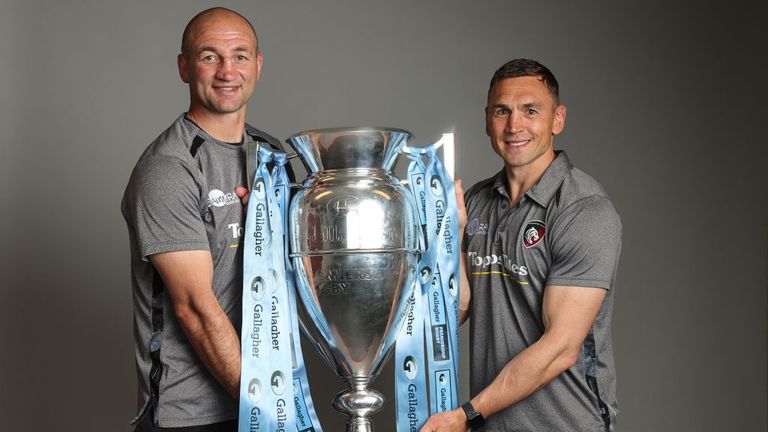
The former Leicester Tigers coaching duo of Borthwick and Kevin Sinfield, Premiership champions last season, are now at the England helm
South African Matt Proudfoot has departed as scrum coach, while Australian Brett Hodgson – rugby league coach with Hull FC until 2022 – departed too having never been involved at a Test after replacing predecessor Anthony Seibold as defence coach after the latter left for NRL side Manly Sea Eagles.
Training coordinator Danny Kerry was another to depart, while it was also confirmed Harlequins attack coach Nick Evans will join the England set-up. Previous attack coach Martin Gleeson was then also announced as a departure.
In playing terms, Owen Farrell has retained the captaincy, beating off Courtney Lawes and Ellis Genge, in what Borthwick termed “a straightforward” decision.
Squad-wise, there is a return for 35-year-old Leicester tighthead Dan Cole after three years away, while established names like No 8 Billy Vunipola and wings Jonny May and Jack Nowell have been left out.
Five uncapped players are included in fly-half Fin Smith, wingers Ollie Hassell-Collins and Cadan Murley and hookers George McGuigan and Jack Walker.
Back-rows Ben Earl, Ben Curry and Alex Dombrandt, second-row Nick Isiekwe, centres Dan Kelly and Joe Marchant, and back-three duo Max Malins and Elliot Daly received recalls from Borthwick.
What’s hot?
From Borthwick’s perspective, having skipper Farrell available despite his citing for a high tackle earlier this month (more on that below) is a big plus.
And like any sporting group, there does often seem to be a bounce or lift in performance once there is a change to the coaching group. There is a tangible sense that will occur with England.
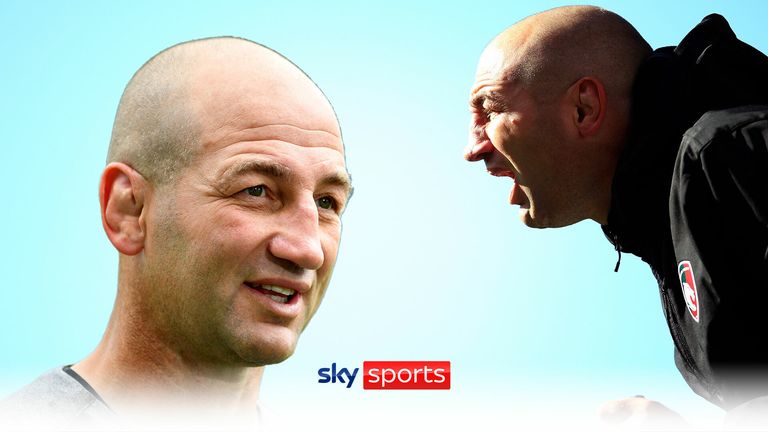
Borthwick has arrived as a breath of fresh air after seven years of Eddie Jones. Will we see a new-coach bounce from England?
England fans are believing again, the coaches are saying the right things, and the players are likely to respond in kind.
Sinfield’s presence as defence coach is a huge positive. An enormously influential figure, he is likely to have a huge impact.
England also have a lot of talented players – something that was never in question under Jones, but rather a frustrating facet to their failures under the Aussie.
Lastly, England’s start to the championship in 2023 could well be read as kind.
Scotland at Twickenham, Italy at Twickenham and a struggling Wales in Cardiff is how the first three rounds read. England may well be welcoming France to the home of English rugby in Round 4 on course for a Grand Slam…and momentum in the Six Nations is very often crucial.
What’s not?
The whole situation regarding Farrell’s availability for England’s Six Nations opener vs Scotland sits in distinctly murky waters.

Skipper Owen Farrell’s availability for the start of the Six Nations, despite a citing, has come in unusual fashion
Farrell was cited for a high tackle made on Gloucester’s Jack Clement in Saracens’ Premiership clash on January 6 – a tackle he avoided a red card for, in a match he would go on to strike the winning drop-goal in.
The punishment marked the third time Farrell has been punished for a high tackle. He was banned for five weeks for a tackle on Wasps player Charlie Atkinson in 2020, with that sanction reduced from 10 weeks on account of off-field mitigating factors.
Back in 2016, Farrell was suspended for two weeks for an illegal challenge on Wasps’ Dan Robson during a European Cup semi-final.
Farrell also avoided a citing in November 2018 for a shoulder charge high to the chest of South Africa centre Andre Esterhuizen while playing for England, as the offence was deemed worthy of a yellow card and not red. Farrell avoided a sin-binning for the incident during the Test as England held on to win by a point, 12-11.
As a repeat offender, Farrell was ineligible for the 50 per cent reduction this time around. And yet, the disciplinary panel reduced his six-week suspension by two weeks for mitigation such as conduct at the hearing. This despite Farrell arguing the offence was not a red card tackle.
Farrell was also offered World Rugby’s Coaching Intervention Programme, otherwise known as ‘tackle school’, to reduce his ban from four weeks to three weeks, availing of a 50 per cent reduction in any case.
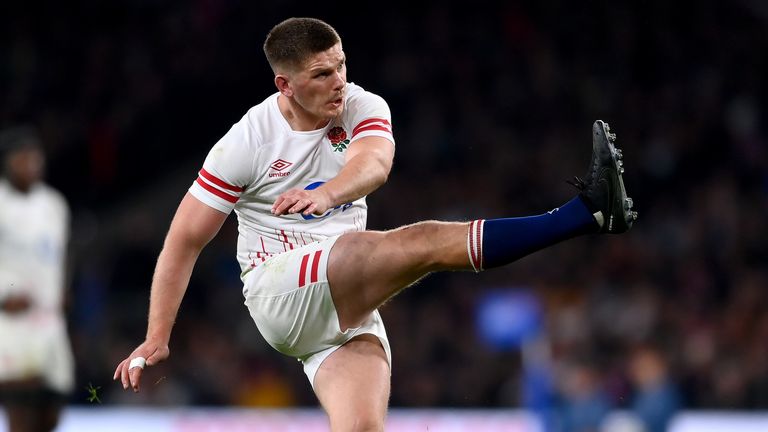
Farrell’s ban was cut in half, despite him being ineligible as a repeat offender, and one of the three fixtures his suspension covers is a Premiership game he would not have played anyway
Upon the suspension being confirmed, the RFU then listed Saracens’ Premiership clash with Leicester on February 19, and not England’s opening Six Nations clash against Scotland on February 4, as the potential fourth fixture he would be banned for should he not attend tackle school, in a bizarre move, but explained away in terms that England’s squad had yet to be announced.
Where the real controversy arose, however, is that the third fixture listed in Farrell’s suspension – Saracens vs Bristol in the Premiership on January 28, a week before the Six Nations kicks off – is a game in which England internationals would not be taking part in anyway, as they would already be in Test camp.
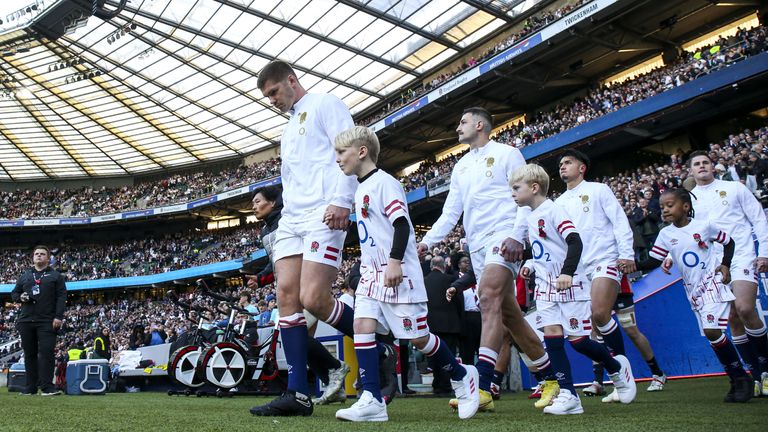
Farrell will continue to lead England as captain, with Borthwick giving the Saracens man his full approval
To get around this, Borthwick and England confirmed the suspended Farrell will be released to Saracens for a game he was never going to play in, in order for his ban to count in the fixture, before returning to England camp and leading the side as captain vs Scotland – a game he is then consequently free to play in. It’s not a great look.
Further negatives are the hamstring injury to back-row Tom Curry, who is a big miss, and the fact that playmaking fly-half Marcus Smith only returned from an ankle injury picked up in November on January 15.
Lawes, Elliot Daly, Jamie George and Mako Vunipola all also suffered injuries of varying degrees a week before the players meet in camp.
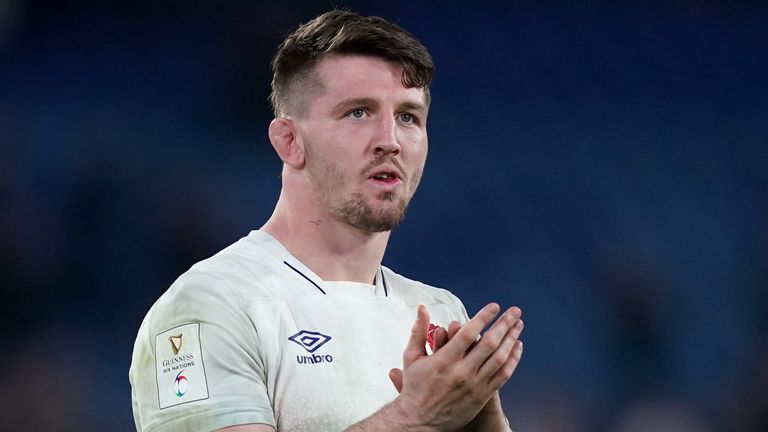
Tom Curry’s absence due to a hamstring injury is a big blow
England’s form before now has also seen their attack stunted, discipline poor, and set-piece beaten. There is a lot of work to do.
Key player
Maro Itoje: If there is one player Borthwick – a former second row – is likely to build up, work closely alongside and place importance upon, it is Itoje.
Marcus Smith has been of huge importance to England, but his ankle injury and Farrell being named as captain means he is unlikely to be the focus, and as such Itoje is more likely to be a key man.

Maro Itoje, supremely talented but regularly indisciplined, is likely to be a central figure under Borthwick
Supremely talented, and massively powerful, if Borthwick and Sinfield can rid Itoje of his maddening indiscipline, the squad as a whole are likely to improve in terms of their relationships with referees.
Whenever England experienced high points under Jones, Itoje was at the heart of it. He has all the tools to become a magnificent performer again.
Championship record
Six Nations since 2000: Seven-time winners (2000, 2001, 2003, 2011, 2016, 2017, 2020).
Overall: 29 outright wins (1883, 1884, 1892, 1910, 1913, 1914, 1921, 1923, 1924, 1928, 1930, 1934, 1937, 1953, 1957, 1958, 1963, 1980, 1991, 1992, 1995, 1996, 2000, 2001, 2003, 2011, 2016, 2017, 2020).
England 36-man squad for the 2023 Six Nations
Forwards (20): Ollie Chessum, Dan Cole, Ben Curry, Alex Dombrandt, Ben Earl, Ellis Genge, Jamie George, Joe Heyes, Jonny Hill, Nick Isiekwe, Maro Itoje, Courtney Lawes, Lewis Ludlam, George McGuigan, Bevan Rodd, Sam Simmonds, Kyle Sinckler, Mako Vunipola, Jack Walker, Jack Willis.
Backs (16): Elliot Daly, Owen Farrell (c), Tommy Freeman, Ollie Hassell-Collins, Dan Kelly, Max Malins, Joe Marchant, Alex Mitchell, Cadan Murley, Henry Slade, Fin Smith, Marcus Smith, Freddie Steward, Manu Tuilagi, Jack van Poortvliet, Ben Youngs.
